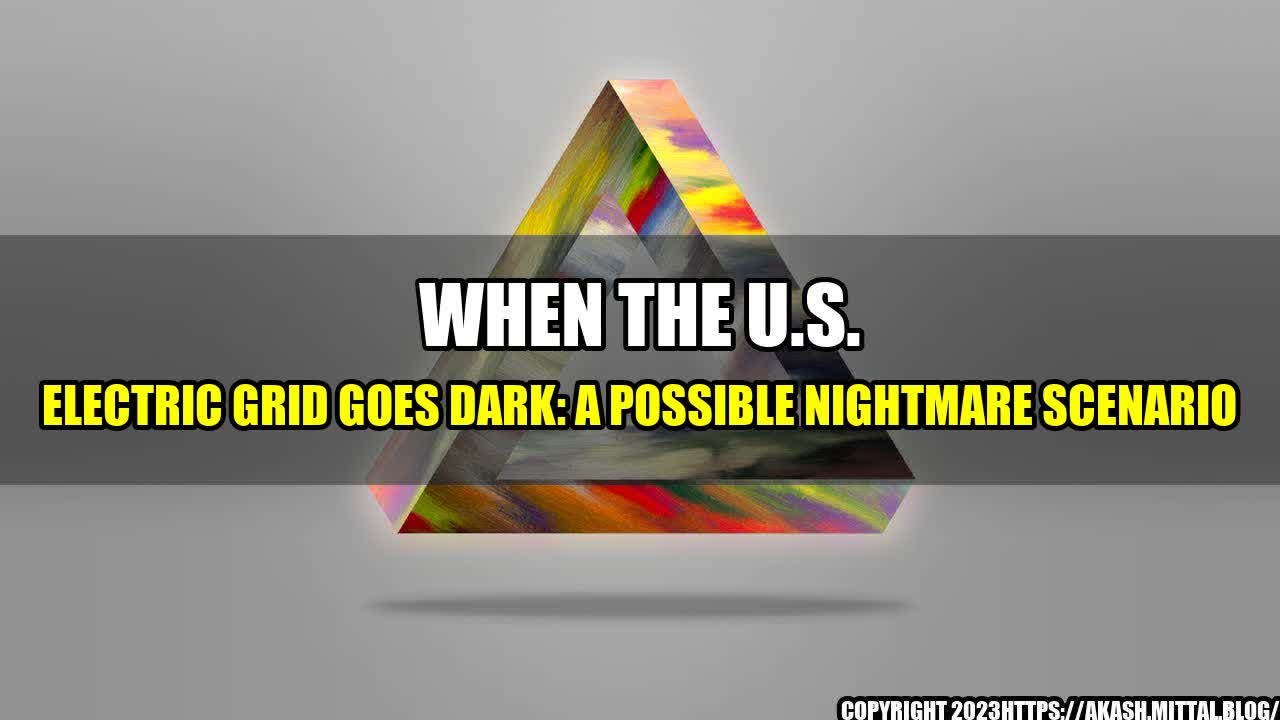The Day the Lights Went Out in America
It was a hot summer day in August, and the sun was beating down on the streets of New York City. People were trying to stay cool inside their air-conditioned homes and offices, but little did they know that their comfortable lives were about to change drastically.
As the temperature rose, so did the demand for electricity. The U.S. electric grid, which delivers power to millions of homes and businesses across the country, was already under strain. And then, suddenly, it collapsed.
Within seconds, the lights went out, and everything that relied on electricity stopped working. The elevators stopped, the air conditioning shut off, and even the traffic lights went dead. Chaos ensued, as people tried to figure out what was happening and how to cope with the sudden blackout.
For some, it was just an inconvenience. But for others, it was a matter of life and death. Hospitals, nursing homes, and other facilities that rely on electricity to keep people alive were suddenly plunged into darkness. Some patients died because the machines that were keeping them alive stopped working.
The Cost of a Blackout
The scenario described above is not just a figment of our imagination. It is a real possibility, and one that could have devastating consequences for our society and economy.
According to a report by the National Academies of Sciences, Engineering, and Medicine, a prolonged nationwide blackout could cost the U.S. economy up to $1 trillion in the first year alone. The report also warns that such a blackout could lead to widespread public unrest, as people struggle to survive without electricity.
But it's not just the economic and societal costs that we should be worried about. A widespread blackout could also have environmental consequences. Without electricity, millions of people would be forced to use generators, which are dirty and polluting. And if the blackout lasts long enough, there could be serious consequences for our food and water supply, as many agricultural and water systems rely on electricity to function.
Preparing for a Blackout
The good news is that there are steps you can take to prepare for a blackout, and to minimize its impact on your life. Here are some practical tips:
- Stock up on non-perishable food and water
- Have a supply of batteries, flashlights, and candles
- Invest in a generator or backup battery
- Create an emergency kit with first aid supplies, a radio, and other essentials
- Keep your phone and other electronic devices fully charged
- Stay informed by listening to the news on a battery-powered radio
But perhaps the best way to prepare for a blackout is to reduce your reliance on electricity in the first place. You can do this by investing in energy-efficient appliances, using renewable energy sources like solar power, and reducing your overall energy consumption. By doing so, you may not only be helping to prevent a blackout, but also saving money on your electricity bills.
The Bottom Line
A nationwide blackout is a nightmare scenario, but it's not a hypothetical one. As our society becomes increasingly reliant on electricity, we become more vulnerable to its failure. By taking steps to prepare for a blackout, and by reducing our reliance on electricity, we can help to prevent this nightmare from becoming a reality.
In conclusion:
- A blackout is a real possibility that could have devastating consequences for our economy, society, and environment.
- Preparing for a blackout can help minimize its impact on your life, and reducing your reliance on electricity can help prevent it from happening in the first place.
- By taking action now, we can help to prevent the nightmare scenario of a nationwide blackout from becoming a reality.

Curated by Team Akash.Mittal.Blog
Share on Twitter Share on LinkedIn